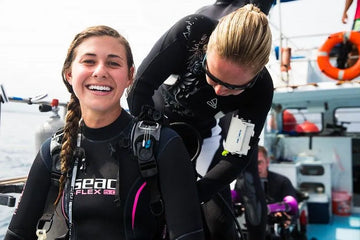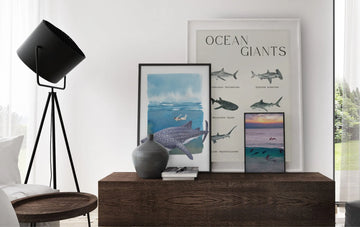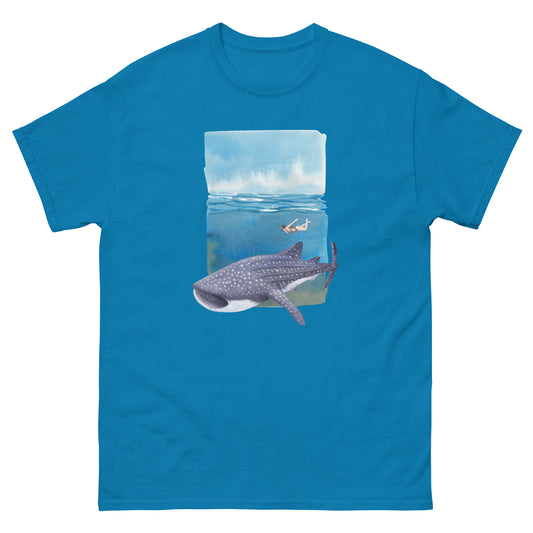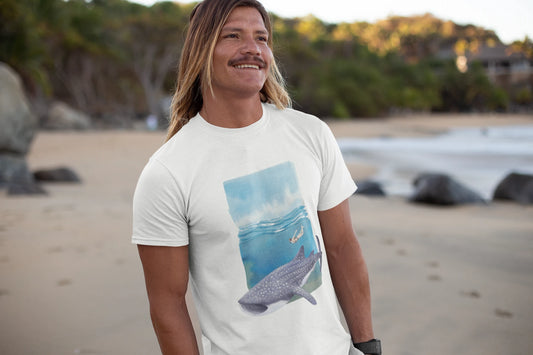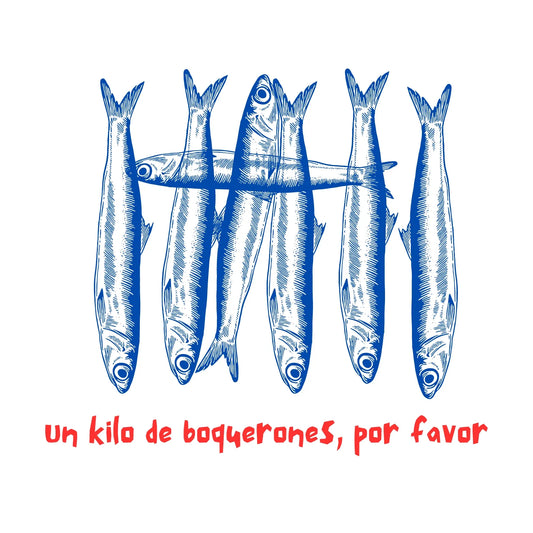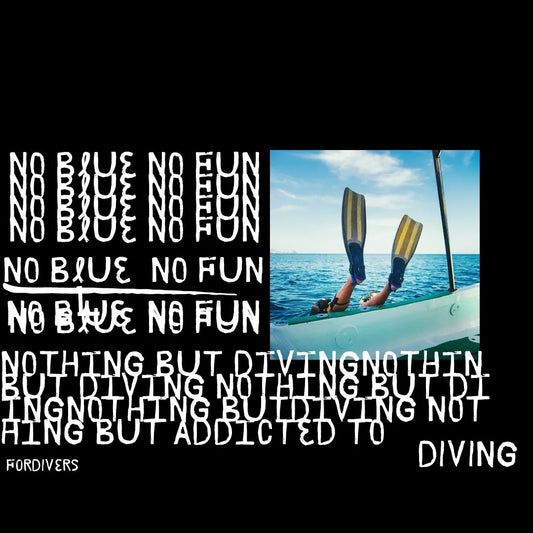Whether you have only dived with dive centers or have ever been on a liveaboard trip I am sure you have witnessed these two situations: on the one hand the group of divers who talk calmly while putting on their equipment and on the other the ones who are visibly nervous. The latter seem to be in another dimension, snorting, constantly checking every piece of equipment, can't find the mask around their neck, looking for their dive knife everywhere, checking over and over again that the tank is open… If you've been in that group, don't worry, we've ALL been that diver.

Being nervous before a dive is normal. But being relaxed during the dive is extremely important for you as a diver, for the safety of your dive buddy and for enjoying the underwater world, which after all, is why we all dive.
T-shirts designed by divers for divers
VIEW MORE T-SHIRTS FOR DIVERS
To be calm during the dive you have to work on it long before the moment of rinsing the mask. Diving relaxed is much more pleasant, safe and allows you to observe much better everything that happens around you. In addition, it will give you more dive time by saving air from our tanks and you'll have more energy for more enjoyable and safer second dive.
If you have just taken your Open Water Diver course, you are starting your first dives and you still get nervous before diving, don't worry. There are many things you can do to make you dive more and more calm and relaxed with the sole purpose of having more and more fun underwater and being able to appreciate the marine life much better.
Following these simple tips will help you stay calmer underwater and enjoy diving much more.
THE DAY BEFORE THE DIVE
You've just arrived in the area where the dives are going to take place, you've talked to the dive center or you've embarked. You're looking forward to the next morning for that great dive you've heard so much about… But the work of having a good dive starts hours before you get in the water:
- Prepare the dive bag the night before the dive. Never do it in the morning, shortly before diving. Keeping a list of the items of dive equipment you need and checking off the items you put in will help you not to forget anything. In your liveaboard try to leave everything ready in your box after the night dive, the batteries and computer charging at night and the suit drying (yes, it will probably be wet all trip long). You are going to be up early and the last thing you want to do is keep everyone waiting for your mask.
- If you go with a dive center, stop by the day before to talk to them. Knowing where it is, where you can park and how long it will take will help you to be more relaxed and familiar with the center and the equipment. Sometimes it also helps asking what dive is planned for that day if possible, what dive site you are going to visit, if you are diving from shore or boat. This way, if it is a dive that requires some boat time you can have something to avoid seasickness, for example. You will also have time to search the internet for info about that dive site, depths, fauna, etc.
- As with any other sport, do not overeat or drink too much the day before the dive. If you drink alcohol, try to drink moderately the night before. This will allow you to rest well, have more confidence for the dive and be better hydrated.
- Try to sleep at least 8 hours. The same, this is a sport that requires you to be rested, sleep what you usually sleep and you will be fresh for that dive.
MOMENTS BEFORE THE DIVE
- Eat a light breakfast and include carbohydrates to avoid dizziness. You should never dive on an empty stomach. You know yourself better than anyone else, eat only what feels good, no experiments. A banana to avoid cramps is not a bad idea either.

- Even if it's a cold day, don't overdress. Feel comfortable, light.
- Arrive in time to the dive center or dive site, where you have met with the group. Chat with everyone, take your time to relax, solve any doubts you may have, tell the guide about your diving level and anything else you think is necessary. You know, you can not exceed the limits that mark your level, experience and diving certificate.
- For those having troubles equalizing, start doing it as soon as you wake up. And even the day before if you have serious equalizing problems. Whatever your technique is: Valsalva, gum, jaw, do whatever you need to do before diving. Equalizing a few hours before the dive helps enormously when the moment of truth arrives.
- Finally, look at the sea, what could be more relaxing than looking at the ocean?
Hoodies Designed for the Deck of Your Liveaboard
SEE MORE SWEATSHIRTS FOR DIVERSJUST BEFORE ENTERING THE WATER
- Thoroughly check yours and your partner's equipment: dive knife (yes, always carry one), operational octopus, open tank, inflated jacket, correctly fastened tank, belt, weights…

- This is a good time to review the basic diving signals with which you will communicate as well as an emergency plan and what to do if you get separated.
Having everything under control before getting into the water will relax us enormously.
HOW TO STAY CALM DURING THE DIVE
- Trust your training and equipment. You've studied, you've practiced, you've seen yourself in that situation and you know what to do at any given moment. There is no reason for you to distrust yourself. If your equipment is in perfect condition, it is practically impossible for it to fail. Don't worry about it.
- Breathing deeply and slowly works on the surface and it works underwater. Take deep breaths and exhale slowly, you will relax almost instantly.
- Look at your pressure gauge regularly without obsessing. Being aware of your air consumption rate will allow you to feel in control of the situation. Also checking your depth gauge regularly and setting time and maximum depth alarms on your dive computer will help you feel more confident.

- Maintain the most hydrodynamic position possible. Learn to improve your underwater position to use less air and energy and be much more comfortable, without tension. Feeling tired and lacking energy will not help you stay relaxed.
- Always stay close to your dive buddy and ask from time to time about the remaining air. It will relax you both.
- Remember to tell your guide and partner when you reach 100 bar and when you reach 50 bar.
Applying these tips will help you to be more relaxed, more and more. If we add experience, dives in different conditions and training, you will see that diving becomes a sport where the most important thing is tranquility and relaxation. Give yourself time.
Do you have tips to share with other divers that will help you to be more relaxed underwater? Leave them in the comments.

